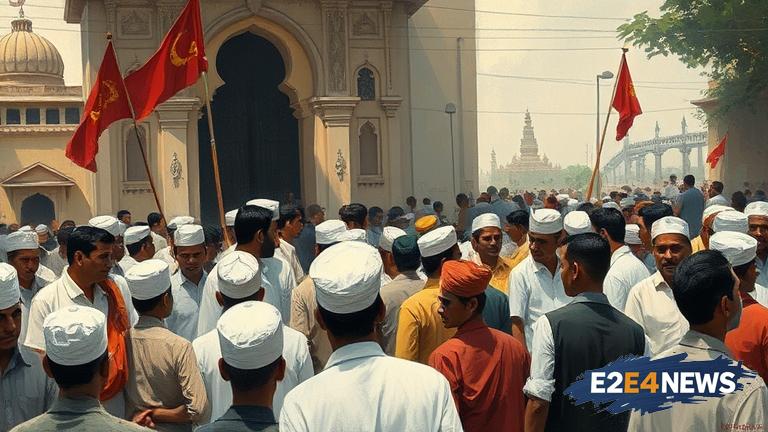The city of Bombay, now known as Mumbai, has a rich and diverse history that spans centuries. One of the most fascinating aspects of this history is the significant role that Muslims played in the city’s politics. From the 19th century to the mid-20th century, Muslims dominated the political landscape of Bombay, holding key positions of power and influence. This era was marked by a unique blend of Islamic and secular values, which shaped the city’s cultural and social fabric. The Muslim community in Bombay was a diverse one, comprising of various ethnic and linguistic groups, including Gujaratis, Konkanis, and Urdu-speaking Muslims. Despite their differences, they came together to form a powerful political force that shaped the city’s destiny. The Muslims of Bombay were known for their entrepreneurial spirit, and many of them were successful businessmen and traders. They were also known for their philanthropic efforts, and many of them donated generously to charitable causes. The Muslim community in Bombay was also home to many prominent intellectuals and thinkers, who made significant contributions to the fields of literature, art, and culture. One of the most notable Muslim politicians of Bombay was Mohammed Ali Jinnah, who later became the founder of Pakistan. Jinnah was a key figure in the city’s politics, and his legacy continues to be felt to this day. Other notable Muslim politicians of Bombay included Abdul Kadir Bawla, who served as the city’s mayor, and Sir Adamjee Peerbhoy, who was a prominent businessman and politician. The Muslims of Bombay also played a significant role in the city’s freedom struggle, with many of them participating in the Indian National Congress and other nationalist movements. Despite their many contributions, the Muslims of Bombay faced significant challenges, including poverty, illiteracy, and social inequality. However, they persevered and continued to play a vital role in the city’s politics and society. Today, the legacy of the Muslims in Bombay’s politics continues to be felt, with many of their descendants still playing important roles in the city’s public life. The story of the Muslims in Bombay’s politics is a testament to the power of diversity and inclusivity, and serves as a reminder of the importance of preserving and promoting the city’s rich cultural heritage. The history of the Muslims in Bombay’s politics is also a reminder of the complex and often fraught nature of Indian politics, where different communities and interests have often come into conflict. Despite these challenges, the Muslims of Bombay continued to thrive and make significant contributions to the city’s politics and society. Their story is a powerful reminder of the importance of tolerance, understanding, and cooperation, and serves as a model for building a more inclusive and equitable society. The Muslims of Bombay also played a significant role in the city’s educational and cultural institutions, with many of them founding and running schools, colleges, and other organizations. These institutions continue to thrive to this day, and serve as a testament to the enduring legacy of the Muslims in Bombay’s politics. In conclusion, the story of the Muslims in Bombay’s politics is a fascinating and complex one, full of twists and turns that reflect the city’s rich and diverse history. It is a story that deserves to be told and retold, and one that continues to have relevance and importance in today’s world.
